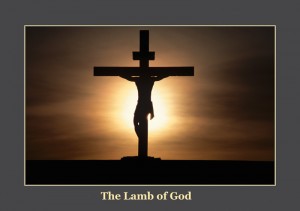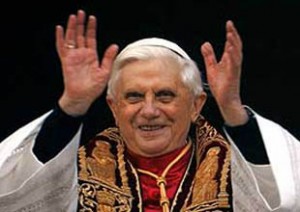First Commandment People
Matt 22:34-40, Mark 12:28-31, Luke 10:25-28
Cn. Glenn E. Davis
First Sunday after Epiphany:
The Baptism of Jesus
January 10, 2009
Illustration: The Movie, “Field of Dreams”:
Ray: You guys are guests in my corn.
I’ve done everything I’ve been asked to do.
I didn’t understand, but I’ve done it.
I haven’t once asked what’s in it for me.
Shoeless Joe: So, what are you saying?
Ray: I’m saying, “What’s in it for me?”
Shoeless Joe: Is that why you did this? For you? I think you’d better stay here, Ray
Point: No matter what kind of sacrifices Ray made, he was continually thinking about himself. Self-centeredness is not love. Love is yielding my rights, privileges, and needs for the sake of God and others (2 Cor. 5:14-15).
Divine Purpose: The Goal of our lives;
We were created by a passionate God to be a passionate people and are heart-fulfilled only when we passionately love and pursue the passionate God. John 4:23.
Divine Call: The conviction that drives our choices;
Love is the passionate unselfish choice for the highest good of God and others without concern for reward or recognition.
Who would forsake the One they follow if they were bound by chains of love? These chains set free and don’t bind (1 Cor. 13; Matt. 22:34-40).
[Ambrose, “Your Portion,” Day by Day with the Early Church Fathers (Peabody, Mass: Hendrickson Publishers, 1999), 272.]
Love is NOT simply an emotional warm and fuzzy feeling, but rather the selfless, passionate giving of oneself to God and his commands. Love desires God’s will and cannot imagine living any other way.
Love is NOT niceness: smiling a lot and never hinting that something or someone is wrong.
Love is NOT sentimentality: warm, fuzzy feelings that are supportive of any, all, and every behavior.
Love is NOT mere sexuality; it does not demand immoral behavior.
Love is NOT turning a blind eye.
Love IS obedience to God’s commands.
Love IS hard choices and saying “no” with strong warning.
Love IS calling sin, “sin.”
Love IS selfless, forgiving, unoffending, and serving.
God IS love.
Matthew Chapter Twenty-Three
Verse 34) Love IS not about competition and pride.
Verse 35) Love IS not about “being right.”
Verse 37) Love IS giving oneself passionately and totally to God. Love deliberately prefers God’s commands to our own desires and wants. Nothing less than giving your entire being in love, devotion, obedience and service to the God of Israel.
“Mind, soul, and body” is Jesus way of saying that the entire person is to be sold out to God.
Jesus is quoting the Shema (Mark 12:29-30; Deut. 6:4-5), verses that are recited twice a day by every dedicated first-century Jew. Often by stating the obvious, a speaker is quite profound. In this verse, Jesus reminds the Jews that the essential quality of a relationship with the God is love. The Shema is repeated all day, but its meaning could be forgotten. Jesus points out the obvious-a relationship with God is just that-a relationship.
Verse 39) Love IS about others. Love assists others in their passionate pursuit of God by helping them adjust their lives to God’s plan and purposes. Love is fulfilled when others reap God’s blessing with my assistance.
We already love ourselves-we make sure we have food, shelter, clothing, nurturing relationships, etc. Now, Jesus calls on us to do the same for others.
Love for others . . .
1. Concrete responsibly to care for others needs (James 2:14-17).
2. Putting others first by NOT thinking first and only about “what you are going to get out of it.” (Illustration: Field of Dreams).
3. We naturally already love “ourselves.” Don’t wait for inner healing to love others.
Illustration: As a pastor, I have heard expressed many times, “I love Christ, but I can’t stand people,” or” I love Christ, but I don’t care for his Church.” However, it is not possible to claim that you love Jesus without being in love with his people. First John teaches that my relationships with people reflect my relationship with God (1 John 2:9; 3:14-15; 4:20).
If anyone says, “I love God,” and hates his brother, he is a liar; for he who does not love his brother whom he has seen cannot love God whom he has not seen” (1John 4:20, ESV).
You love Jesus, in turn, Jesus is in love with people, therefore, you will love people since you love Jesus (1 John 4:10-11).
Everything that comes as a barrier between us another, be it never so small, comes as a barrier between us and God. We have found that where these barriers are not put right immediately, they get thicker and thicker until we find ourselves shut off from God and our brother by what seem to be veritable brick walls. Quite obviously, if we allow New Life to come to us, it will have to manifest itself by a walk of oneness with God and our brother, with nothing between (Roy Hession, The Calvary Road, pg. 36).
Verse 40) Love IS the essence of a relationship with God and the heart of his commands. Loving God and others brings life.
Luke 10:25-28, “Do this and you will live.”
Definition: Eternal life is life and life more abundantly-it is being alive in the realm where God lives. Life is walking with God in unending communion, enjoying his unlimited blessing, experiencing his unconditional love, and receiving his undeserved grace.
Conclusion: We are called to be a first commandment people: we are not fulfilled unless we passionately love our passionate God and serve a passion-driven people. Be passionately in love with your passionate God as you transform your passions into love for others.
We are passionately in love with God because God’s passionate love for us was displayed on the Cross. God’s passionate, transformative love changed our hearts from self-centeredness to Christ-centeredness by the power of the Holy Spirit. Therefore, God’s love enables us to love others with his passionate love. First commandment people have their priorities in order: they have fallen in love with God and they love what he loves-people.







